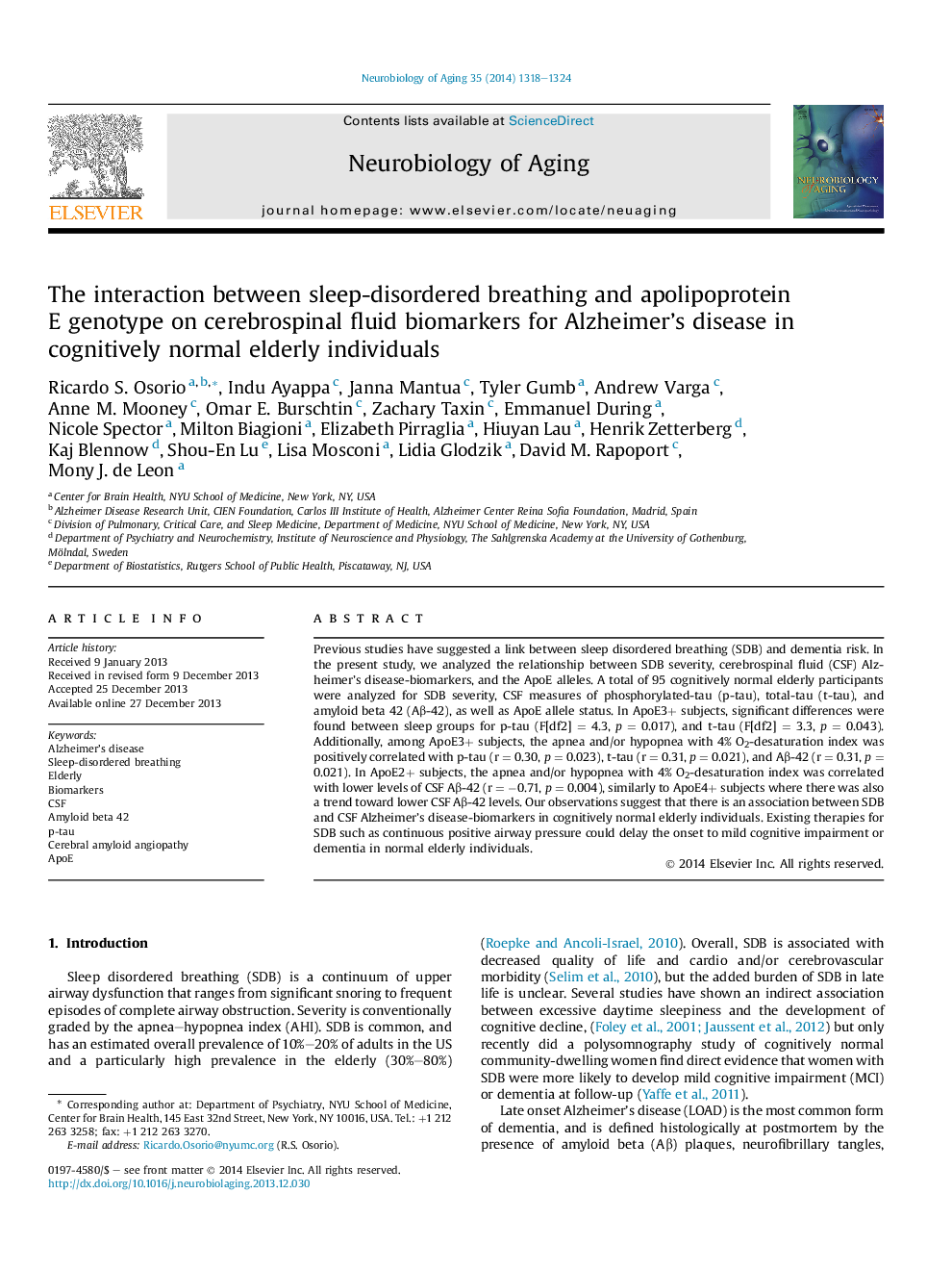| Article ID | Journal | Published Year | Pages | File Type |
|---|---|---|---|---|
| 6805927 | Neurobiology of Aging | 2014 | 7 Pages |
Abstract
Previous studies have suggested a link between sleep disordered breathing (SDB) and dementia risk. In the present study, we analyzed the relationship between SDB severity, cerebrospinal fluid (CSF) Alzheimer's disease-biomarkers, and the ApoE alleles. A total of 95 cognitively normal elderly participants were analyzed for SDB severity, CSF measures of phosphorylated-tau (p-tau), total-tau (t-tau), and amyloid beta 42 (Aβ-42), as well as ApoE allele status. In ApoE3+ subjects, significant differences were found between sleep groups for p-tau (F[df2] = 4.3, p = 0.017), and t-tau (F[df2] = 3.3, p = 0.043). Additionally, among ApoE3+ subjects, the apnea and/or hypopnea with 4% O2-desaturation index was positively correlated with p-tau (r = 0.30, p = 0.023), t-tau (r = 0.31, p = 0.021), and Aβ-42 (r = 0.31, p = 0.021). In ApoE2+ subjects, the apnea and/or hypopnea with 4% O2-desaturation index was correlated with lower levels of CSF Aβ-42 (r = â0.71, p = 0.004), similarly to ApoE4+ subjects where there was also a trend toward lower CSF Aβ-42 levels. Our observations suggest that there is an association between SDB and CSF Alzheimer's disease-biomarkers in cognitively normal elderly individuals. Existing therapies for SDB such as continuous positive airway pressure could delay the onset to mild cognitive impairment or dementia in normal elderly individuals.
Keywords
Related Topics
Life Sciences
Biochemistry, Genetics and Molecular Biology
Ageing
Authors
Ricardo S. Osorio, Indu Ayappa, Janna Mantua, Tyler Gumb, Andrew Varga, Anne M. Mooney, Omar E. Burschtin, Zachary Taxin, Emmanuel During, Nicole Spector, Milton Biagioni, Elizabeth Pirraglia, Hiuyan Lau, Henrik Zetterberg, Kaj Blennow, Shou-En Lu,
